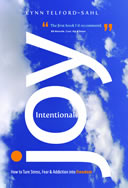Your Stressed Brain on Money: 3 Steps to Make Better Financial Decisions
 Friday, March 7, 2014 at 7:52AM
Friday, March 7, 2014 at 7:52AM  Post a Comment
Post a Comment Your brain on money. We women in business love to believe that our logical brain is in charge when it comes to making decisions about money. If we're not in stress or fight or flight, this is true. But, when stressed, it's the emotional brain that's running the show. The research of Dr. Bessel van der Kolk, founder of the Trauma Center in Brookline, Massachusetts, shows that even people with no trauma history, but who are undergoing especially strong emotional stimulation, we shift into the right-brain (emotional) processing which shuts off logic.
especially strong emotional stimulation, we shift into the right-brain (emotional) processing which shuts off logic.
Emotions Rule - forget the budget you've set for yourself. ATTENTION shoppers - this is WHY - when you come home from a super stressful day at work, your kids are after you for attention, you have to cook dinner, get the homework, etc. and FINALLY, emotionally exhausted, you turn to the internet to do a little SHOPPING and spend more than you had intended.
I talk to women in business every day who would love to be able to know how to manifest more money, but are worried about credit card debt, saving 6 months earnings for a cushion account, retirement, their children's education, AND have HUGE credit card debt.
What's happening with the brain here? INSTANT GRATIFICATION vs. delayed gratification. Dr. Krueger author of The Secret Language of Money says the logical part of brain says, "I'm saving for my future." But the emotional part says "Oh yeah - I want the money now." And, we know who wins, right?
We aren't going to change the nature of the brain, but we can help our brain make better thought out money decisions by getting the emotional and logical sides of the brain to work together.
Here are 3 Steps to Make Better Financial Decisions:
1) If you're super stressed or upset, table any decisions until you've calmed down. Going through a divorce, losing a business, experiencing an illness all hike emotion. Wait at least 24 hours.
2) Talk to a friend or preferably financial advisor or Money coach to get support and a reality check so you help your brain stay more in logic than emotion.
One of my money coaching clients saved $5,000 in one month and $60,000 over the next year by making one logical vs. emotional decision. It pays to SLOW down, get help and create a plan!!
3) Create a structured plan. What are your financial goals? Write out the action steps to achieve them. For example: Create a 6 month cushion account. Action Step: Only go out to dinner 1x a week. Take money saved and have it automatically deposited into a savings account. DON'T TOUCH SAVINGS.
Click Here for FREE 15 Minute Consult for any money question you have. My gift to you.
WANT TO USE THIS ARTICLE IN YOUR NEWSLETTER OR ON YOUR WEB SITE?
You can, as long as you include this complete blurb with it:
Certified Money & Business Coach, Professional Speaker & author, Lynn Telford-Sahl, writes the weekly PowerUP Your Money blog for women in sales and small business. If you’re ready to PowerUP your Money, your Business & your JOY get your FREE Strategy Session with Lynn at www.joywithmoney.com
 Lynn Telford-Sahl tagged
Lynn Telford-Sahl tagged  fear of money,
fear of money,  financial coach,
financial coach,  manifesting,
manifesting,  money coach,
money coach,  money fears,
money fears,  women in business
women in business












